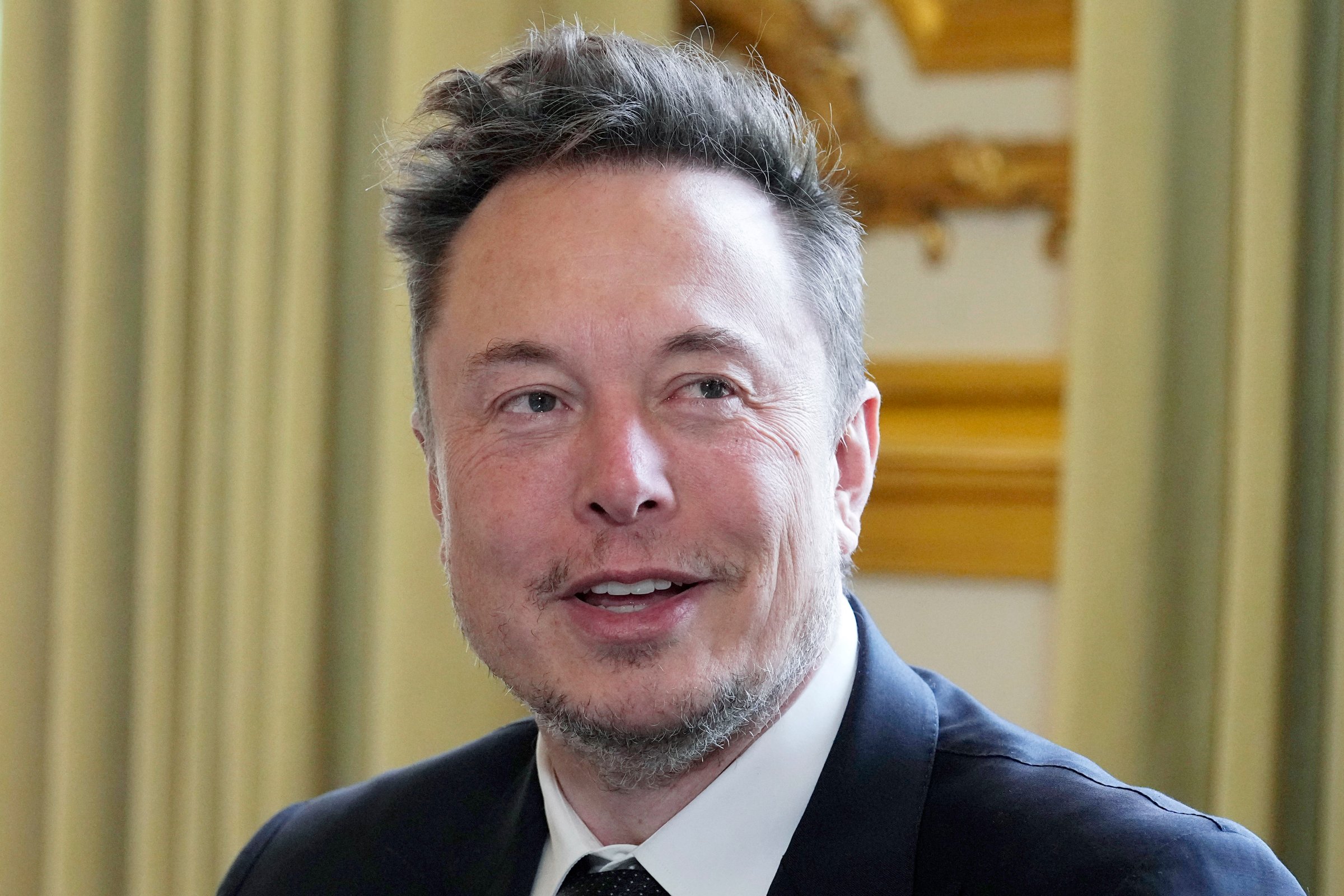
Neuralink Corp., Elon Musk’s brain-implant company, said it received approval from the US Food and Drug Administration to conduct human clinical trials.
“This is the result of incredible work by the Neuralink team in close collaboration with the FDA and represents an important first step that will one day allow our technology to help many people,” the company said Thursday in a tweet.
The FDA and Neuralink did not immediately respond to requests for comment.
Musk’s startup is developing a small device that will link the brain to a computer, consisting of electrode-laced wires. Placing the device requires drilling into the skull.
The approval “is really a big deal,” said Cristin Welle, a former FDA official and an associate professor of neurosurgery and physiology at the University of Colorado. “They can initiate human trials, which means they have passed the safety preclinical testing and the bench testing,” she said, meaning testing for mechanical and design flaws, as well as for longevity and biocompatibility.
Founded in 2016, Neuralink attracted some top neuroscientists to work on its brain implant, although many have since moved on to other companies or academia. Musk, who also runs carmaker Tesla and owns social network Twitter, has for years said that the company was close to FDA approval for in-human trials.
The company’s device aims to help people with paralysis or traumatic brain injuries communicate and control a computer using only their thoughts. Eventually, aside from helping people who are sick, Musk has hypothesized that the device could enable humankind to keep up with advances being made by artificial intelligence.
Neuralink isn’t the first brain-computer interface company to enter human trials. The field has become competitive since the company’s founding. For example, Synchron has already enrolled its first US patient in a clinical trial, putting the company’s implant on a path toward possible regulatory approval for wider use in people with paralysis. Synchron’s device is less invasive than Neuralink’s, and works using a different technology.
Musk’s startup has raised alarms with some animal rights groups for its testing on primates. The U.S. Transportation Department began an investigation into the company after an animal advocacy group said it obtained emails suggesting the startup did not follow proper procedure when shipping possibly hazardous materials.
Despite the FDA trial approval, widespread brain implants are still not imminent. Neuralink’s device is still likely at least five to 10 years away from commercialization, Welle said. Setting up a trial and recruiting patients will take several months. It took Synchron almost a year between announcing it had received FDA approval for its first US patient and actually implanting the device in July 2022. Typically, the first in-human trials enroll five to 10 patients and take around six months, Welle said.
The first human study allows the company to adapt its device design depending on the results, without having to start the whole FDA application process again. “It gives you flexibility,” Welle said.
If the study goes well, Neuralink can then start what’s known as a feasibility study, and finally a pivotal study, which is roughly analogous to a phase III study for a drug.
More Must-Reads from TIME
- Cybersecurity Experts Are Sounding the Alarm on DOGE
- Meet the 2025 Women of the Year
- The Harsh Truth About Disability Inclusion
- Why Do More Young Adults Have Cancer?
- Colman Domingo Leads With Radical Love
- How to Get Better at Doing Things Alone
- Michelle Zauner Stares Down the Darkness
Contact us at letters@time.com